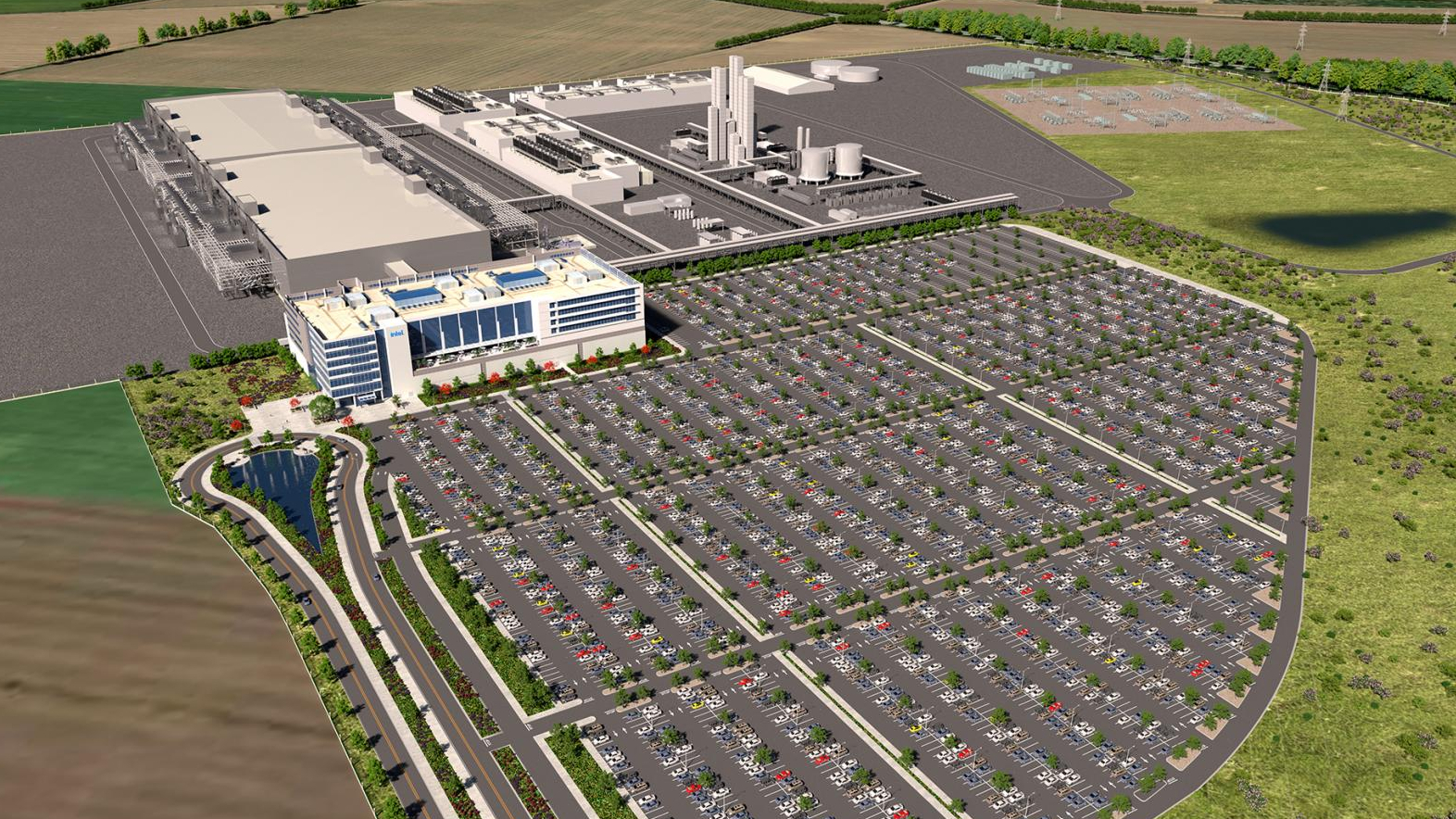Now it's official: On March 15 at 2 p.m. CET, Intel CEO Pat Gelsinger confirmed in a worldwide webcast the billion-euro plans for the new chip factory in Magdeburg with structural dimensions "in the Angstrom range", i.e. those around and below 3 nm. Intel initially wants to invest 17 billion euros in two fabs and, as Gelsinger emphasized, create around 7,000 jobs in the construction of the plant and 3,000 permanent jobs in later production - in addition to several tens of thousands more at suppliers and in the infrastructure. This is a significant gain for the city and the state of Saxony-Anhalt. Gelsinger: "Germany is the ideal place for advanced chipmaking." 'Silicon Junction' Magdeburg is to act as a connection point for other innovation centers in the region and in Germany. The decision had already been expected at the beginning of March - probably also in view of the dramatic global political events, Intel then took another 10 days to make the decision.
The project in Magdeburg is part of the first phase of a huge investment program of 80 billion euros in the EU over the next ten years "along the entire semiconductor value chain, from R&D to packaging". Construction work is scheduled to begin in the first half of 2023, with production starting in 2027. Foundry customers are also to be served from here as part of Intel's IDM 2.0 strategy.
At the same time, Gelsinger announced the construction of a new European R&D hub in Plateau de Saclay (France), which will serve as Intel's European headquarters for High Performance Computing (HPC) and Artificial Intelligence. A total of 1,000 high-tech jobs are planned there, including 450 by the end of 2024. Further investments and expansion of existing branches are planned in Leixlip (Ireland), Italy, Gdansk (Poland) and Spain in order to raise Intel's commitment to a Europe-wide level. With the active support of the EU and national governments, this should serve to develop a powerful next-generation "European chip ecosystem" and ensure balanced and stable supply chains. Gelsinger specifically referred to the EU Chips Act and its incentives for extensive investments and start-ups in the R&D infrastructure and chip production on European soil.
In addition, cooperation with European research institutions such as imec in Belgium, TU Delft in the Netherlands, CEA-Leti in France and the Fraunhofer Institutes in Germany will of course be intensified in specific areas.


